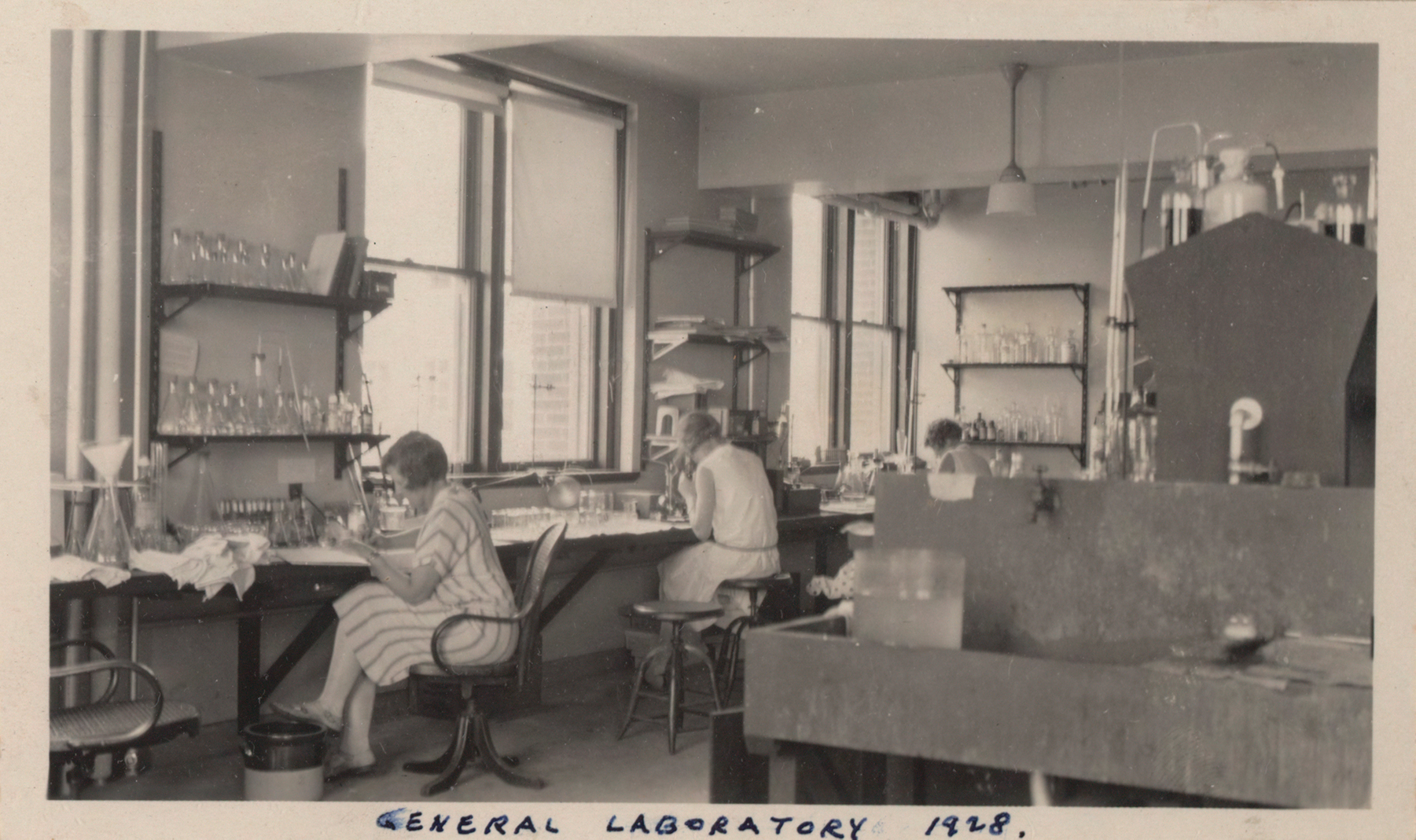Celebrating MBL’s Women in Science

Every February 11, the United Nations celebrates the International Day of Women and Girls in Science. Take a moment to celebrate the women in science at the MBL.
The Marine Biological Laboratory has always been a unique institution—it’s part of the “MBL magic” that many scientists and students talk about every year. Its founding was no exception. When the MBL was founded in 1888, it was unusual for its time in that it encouraged women students of science to apply on an equal footing with their male peers.
In the more than a century since, the MBL has had some ups and downs regarding women in science—the years between 1910 and 1970 saw a lull in female admissions—but has made great strides in the last 60 years in making the institution a place where everyone can study and thrive, regardless of gender.
In a world where fewer than 30% of science jobs are filled by women, we’re proud that 53% of MBL employees (and 54% of our resident scientists) are women.
Of the 219 graduate and post-graduate students who attended one of MBL’s 2021 Advanced Research Training Courses, 119 (54%) were women.
Woman-led MBL News Highlights: 2021 Edition
Sea Anenome’s Survival is Threatened by Current Levels of Wetland Pollution
In Need of New Reproductive Cells? This Marine Worm Shows a Way
Legends of Squid Research at the MBL: Chasing Down Why Neurons Live or Die
Dr. Karen Echeverri: Regenerate Arms? Spinal Cords? | Critically Speaking Podcast
Marine Biological Laboratory Names Anne W. Sylvester Director of Research
Cuttlefish Retain Sharp Memory of Specific Events in Old Age, Unlike Humans, Study Finds
Too Small to Eat? Indu Sharma, E.E. Just Fellow, Asks if Shape Helps a Microbe Survive
Las Ventajas de la Acuicultura / The Advantages of Aquaculture | Univision 34 Los Angeles
“Take Five” with MBL Trustee Patrice Yarbough: From the MBL to NASA and Beyond
What’s so Bad About … Nitrogen? | Bluedot Living
The Haunting Nature of Plastics | Hakai Magazine
This Creature Survived 24,000 Years in Siberian Permafrost | The New York Times
MBL Begins First Test of Tropical Seaweed Farming for Biofuels Production
Fast-Learning Cuttlefish Pass the Snacking Test
Coastal ‘Dead Zones’ Are Multiplying. Seaweed Farms May Be the Solution | Bloomberg
 Women in an MBL Lab, 1928. Credit: MBL History Project
Women in an MBL Lab, 1928. Credit: MBL History ProjectMBL’s Women-Heavy History
During its long history, the MBL has been a source of inspiration for generations of women in science—from Cornelia Clapp, who helped found the institution, and Rachel Carson, the mother of the modern environmental movement, to the thousands of female students who have studied in Woods Hole during the last 132 years.
Learn more about some of the MBL’s female leaders at the Legacy of Leadership exhibit.
Science and scientific discovery belong to everyone, no matter their gender, sexual identity, or color of their skin. At the MBL, we are working hard to create an inclusive environment for scientists, students, visitors, and fellows alike.









